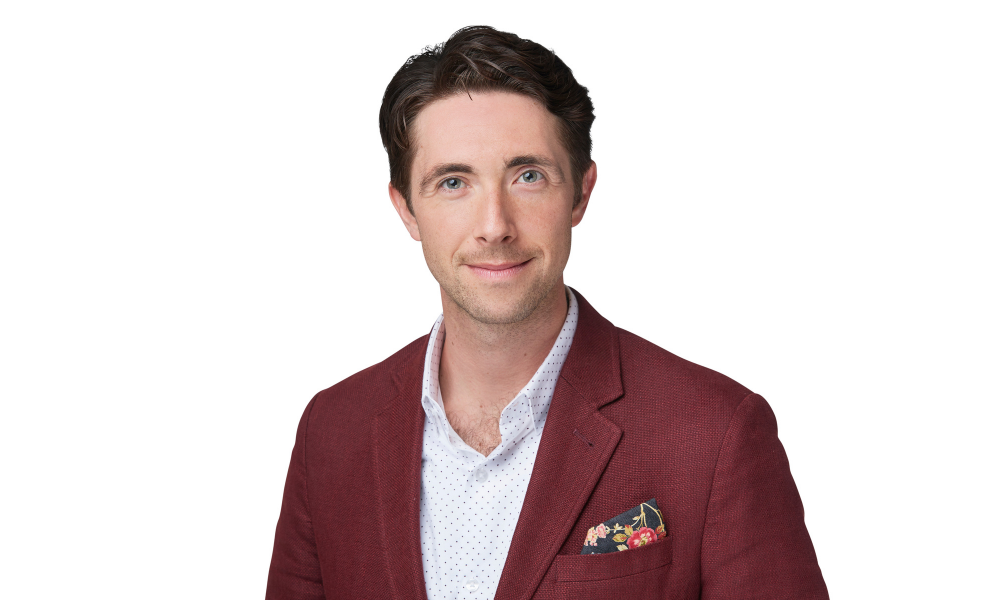Erik Wachman explains his approach to topics like death, long-term care, addiction, and disposing of the family cottage

Financial advice quickly turns into conversations about life. Those conversations about life can quickly turn heavy. When advice is geared towards someone’s goals, dreams, and desires, it also has to factor in the subjects they don’t always want to think about: death, illness, addiction, long-term care, and the possibility of liquidating treasured assets.
Erik Wachman is having these conversations every day. The financial planning advisor at WWH Financial Group of Assante Financial Management Ltd. explained that his day to day work often involves opening conversations about these challenging topics. He highlighted some of the issues he sees occurring frequently, how he helps to address them, and what other advisors can take from his experience.
“At every review meeting that we have with clients we have a whole section where we talk about estate planning and the way we do it, to make it seem a bit more natural, is we state these topics as matters of fact,” Wachman says. “We speak in hypotheticals and we look at the worst case scenario and plan for it. We hope that things won’t end negatively, but that worst case scenario planning is key because if we don’t plan, that’s when problems arise.”
Of the myriad challenging topics Wachman raises with his clients, he says that sometimes death is a bit easier than subjects like illness and long-term care. Death, as much as we prefer not to think of it, is a given. We will all die. Long-term care, conversely, is a risk but not a certainty. Wachman refers to it as an ‘ominous cloud,’ that can appear in someone’s life, but they don’t know when or if it will show.
Wachman says that he currently sees some clients unwilling to acknowledge their need for care. Mental and physical cracks may be starting to show, but Wachman says that many people will refuse to acknowledge their challenges and turn away the prospect of help. He’s seen clients who are losing the ability to bathe and feed themselves insist that they don’t need help because they can still carry on conversations. In these situations Wachman says its key to have established both trusted contact persons — allowing for more informal consultation with key people — as well as help introduce the idea of powers of attorney.
One of the keys to approaching these topics, especially when one generation is aging, is to build relationships with the so-called ‘sandwich generation’ – the ones with aging parents, younger children, and who are currently working. These individuals are often very busy, but finding the time to connect and plan with that generation is key. Through that relationship an advisor can help better ensure that an estate plan reflects the desires of the whole family. That relationship can also help an advisor position their practice well for the intergenerational wealth transfer.
Heavy conversations don’t always revolve around estate plans, though. Sometimes an advisor may gain insight into a worrying trend in a client’s financial behaviour, which could include the emergence of an addiction. Whether substance abuse or gambling, addictions will have financial implications. Wachman says that these situations can be difficult for advisors, because they are there to provide the client with access to their money, but they could be privy to worrying behaviour. When alarm bells start to flash red, Wachman says it’s helpful for advisors to reach out to those trusted contact persons, using that circle of trust to pass on their concerns.
Recently, Wachman has been engaging in some heavier conversations around family cottage properties. Many of these properties have skyrocketed in value and are subject to higher capital gains tax inclusion rates. At the same time, many Canadians have blended families with differing ideas about the cottage and how it should be used or disposed of. Not to mention the deep emotional attachment that many families or individuals have to that property. It’s hard to part with the lake you, your kids, and your grandkids all learned to swim in.
Proactivity is key to Wachman’s approach with cottages, he tries to introduce the nuances involved in an eventual disposition and — as with many other issues — he brings in other stakeholders to ensure that a plan reflects what the family wants with the property. As other advisors grapple with these weighty topics and heavy conversations, Wachman continues to drive home the value of proactive plans and family involvement.
“We have a role to maintain the holistic wealth of individuals and that that stretches from their own wellbeing to their parents wellbeing to their children's wellbeing,” Wachman says. “I think our role is to make sure that we're giving them the space to speak, to see what the pain points are, up and down the family line, or even across, and make sure that they we have enough relationships with partners, say in the insurance side, say in the care space, so we have some professionals that can help if We need to go down those avenues. Our goal is to be the frontline between an individual, their finances, and their pain points.”



